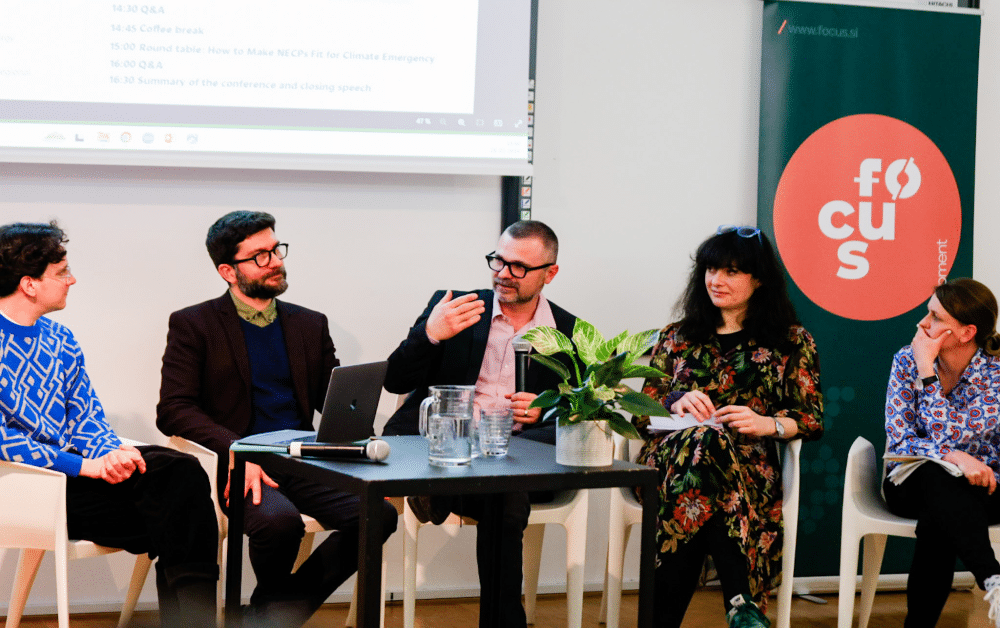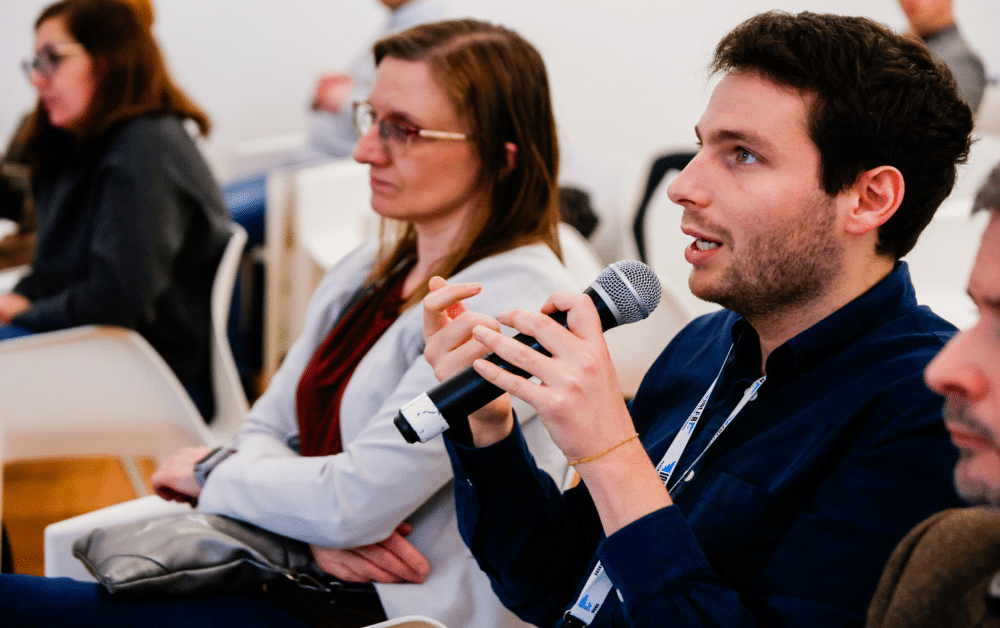Ljubljana. 28-29 February 2024
The environmental NGO FOCUS (Association for Sustainable Development) – with the support of CAN Europe and of the LIFE TF1.5 consortium – organised a two days conference, revolving around Climate and Energy Planning in Central and Eastern Europe. Topics of interest included the NECPs State of play – four months ahead of the submission deadline of the finalized NECPs by Member States (30 June), how to enhance ambition, public participation and transparency during the drafting process of the plans. With the occasion of the conference a roundtable has been organized where Katarina Trstenjak (Institute Jožef Stefan – Center for Energy Efficiency), Brigitta Bozso (CAN Europe), Vjekoslav Jukić (Ministry of Economy and Sustainable Development of Croatia) and Genady Kondarev (E3G climate think tank) exchanged on how to make the NECPs fit for climate emergency considering the high potential in terms of co-benefits that accelerated climate action brings for people and the planet.

This high potential is described and quantified in our recent report, “Paris Pact Payoff: Speeding up the green transition for socio-economic co-benefits”, proving that adopting a 1.5°C compatible pathway could save the entire European Union at least €1 Trillion by 2030. In addition, such a pathway presents markedly fewer economic losses compared to grappling with the fallout of climate impacts. The EU in fact stands to avert cumulative losses from now to 2100 of €22.2 trillions, versus inaction, or €4 trillions compared to the current policy scenarios. These figures shall be taken into account in view of the upcoming EU elections and show that accelerated and bold climate action not only ensures social well-being, but is a powerhouse of economic co-benefits.
To unlock these benefits – including positive impacts on improved health, increase of green jobs creation, reduction of energy poverty and material footprint – we need a detailed and concrete plan to move forward. In this regard, the speakers agreed on the importance of including detailed and concrete policies and measures while drafting the plans, together with a meaningful involvement of the public to successfully achieve a just transition and climate neutrality in the EU.

However, as of today the involvement of the citizens in drafting the revised plans remains concerning at the EU level as it’s generally not compliant with the obligations outlined in the Governance Regulation (Art 10; Art 11) that Member States need to fulfil. Slovenia – as showcased during the conference is one of the good examples when it comes to public participation process, but in several countries the draft NECP wasn’t shared during the consultation (at least in four countries) or, if it was, it had been shared incompletely or too late for meaningful contribution from the public (in at least three countries). For an effective participation process, public consultations must take place when all options on the draft NECP are still available, which was clearly not the case in several countries where everything was already decided when the consultation took place (at least in three countries). The findings of a joint NGO report – Public participation in National Energy and Climate Plans: Evidence of weak & uneven compliance in Member States – show that effective public consultations were hampered by the short timeframe to provide advice – sometimes only 3 or 4 weeks (at least four countries) and by the limited space to provide feedback (at least two countries). Furthermore, some consultations were organised too late and some even after the 30 June deadline for submission of the draft NECP to the European Commission (at least two countries).
The overall final key takeaway of the conference was about the importance to use at the best of our possibilities the small window of time left from now to June 2024 to fill the gap between the current shortcomings contained in the plans and the requirements set at the EU level to achieve the Paris Agreement objectives to keep global warming to 1.5°C.
The conference was organized by the environmental organization Focus with the support of the CAN Europe network, which brings together more than 200 organizations from 40 European countries, and other partners from the Together For 1.5 project: Croatian organizations DOOR, Czech CDE, Polish ISD, MTVSZ from Hungary, ELF from Estonia and ZaZemiata from Bulgaria. You can find the program here and the Slovenian Press Release here.
PREVIOUS
NEXT
